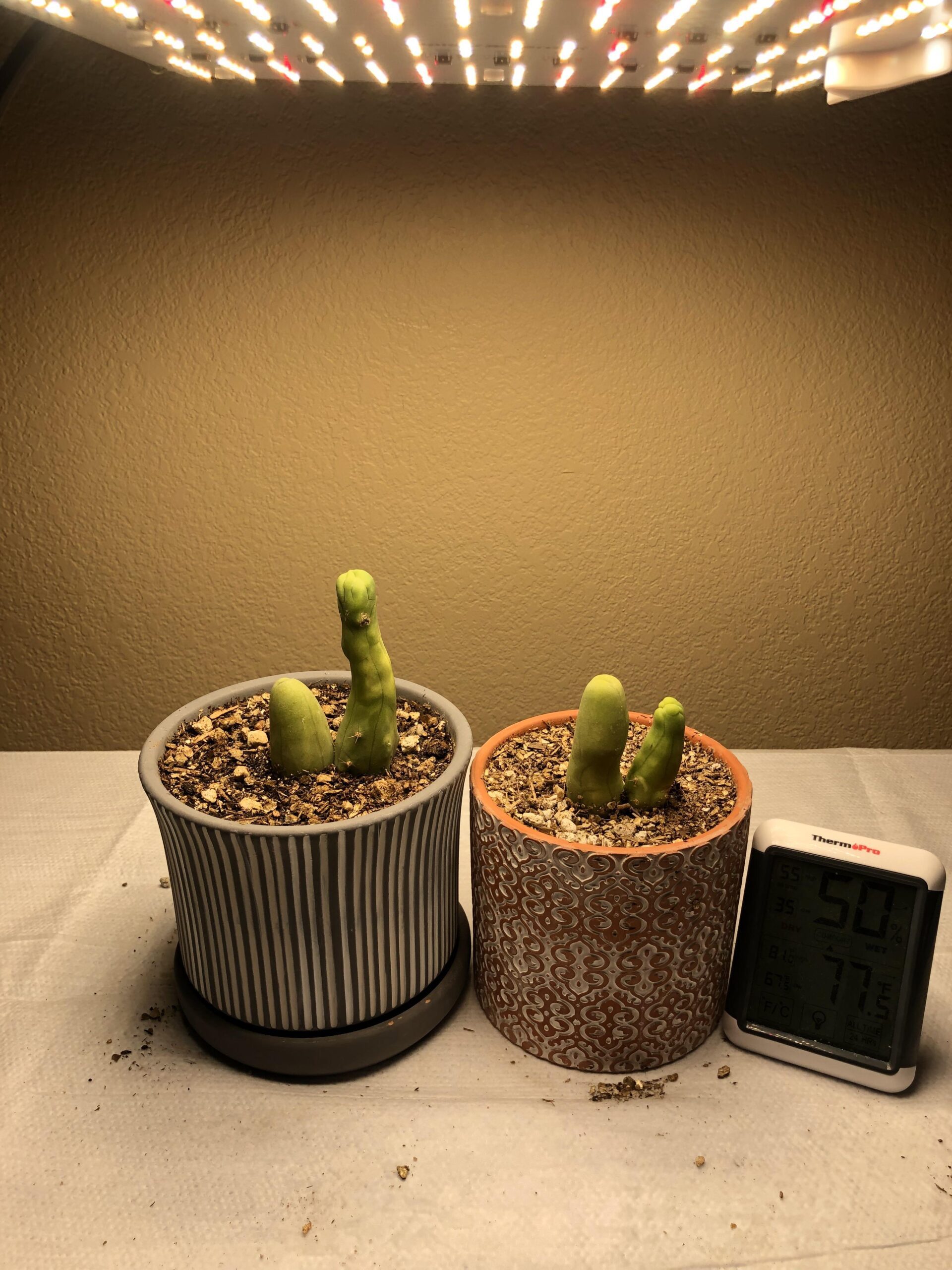Clones do not require 24 hours of light; instead, they often thrive on 18 hours of light and 6 hours of darkness. This light cycle encourages healthy growth during the cloning stage.
Ensuring proper light conditions is crucial when nurturing plant clones. A common practice among cultivators involves following an 18/6 light schedule, which means providing clones with 18 hours of light followed by a 6-hour dark period daily. This regimen not only supports the vegetative growth phase but also aligns with the plants’ natural response to daylight.
Clones, as with any young plants, are sensitive to their environmental conditions. Mimicking a natural light cycle helps the young clones develop robust root systems and sturdy structure before they enter the flowering stage. By adopting a well-structured light schedule, growers can optimize the early stages of plant development, setting a solid foundation for healthy and vigorous growth.
Understanding The Cloning Process
Plant clones are exact genetic copies of the original specimen, created to reproduce desirable plant characteristics. Through the cloning process, growers achieve consistent quality and traits, bypassing the unpredictability of sexual reproduction. Cloning methods vary, including techniques such as cutting, where a segment of a plant is rooted, and tissue culture, a more advanced method involving the cultivation of plant cells in sterile conditions.
The relevance of light in cloning cannot be understated. Light is a pivotal factor in cloning, influencing root development and overall clone health. During the initial stages, clones require a delicate balance of light to stimulate growth without causing stress. Understanding the specific light requirements for each plant species is crucial for successful clone development.
Factors Influencing Clones’ Light Requirements
Cloning plants can be quite a meticulous process, with light exposure playing a critical role. Understanding the light duration impact on growth is fundamental. Generally, clones thrive under 18 to 24 hours of light daily. This extended exposure promotes photosynthesis, a vital process for the development of the young plants. A consistent light schedule not only encourages robust root formation but also supports the initial vegetative growth stage.
Setting the optimal light conditions for clones involves using the right kind of light and intensity. LED or fluorescent lights, typically less intense than HPS or MH bulbs, are favored for clones to prevent damage to the tender growth. Ensuring clones receive a gentle and diffused light minimizes stress while fostering a conducive environment for steady development.
Observing a day and night cycle for clones is crucial. These cycles simulate natural environmental conditions that young plants would experience outdoors. A period of darkness is beneficial as it contributes to the plant’s respiration and recovery, essential processes for healthy maturation. Implementing a light-dark schedule, such as 18 hours on and 6 hours off, can be effectively used to promote a balanced growth pattern for cloning success.
Implementing The Ideal Light Schedule
The debate around providing clones with 24 hours of light is centered on the belief that continuous exposure stimulates faster growth. Clones, being young plants, are in a critical phase of development; hence, the light schedule plays a pivotal role in their growth cycle. It’s essential to consider the clones’ need for a period of darkness akin to the natural cycle, as it aids in their metabolic processes and prevents stress.
Balancing the light and dark periods is crucial. Experts suggest that the best approach is a cycle simulating natural conditions, which means incorporating a balanced light schedule. Clones may benefit from a routine that includes both light and dark phases, promoting more robust and healthier plant development.
Gardeners and growers aiming for optimal growth should experiment with 18 hours of light followed by 6 hours of darkness. This schedule supports the clones’ photosynthesis during the day and respiration at night, facilitating a harmonious growth environment. Tailoring the light schedule to the plants’ specific needs can lead to better yield and quality.

Credit: www.invaluable.com
Frequently Asked Questions Of Do Clones Need 24 Hrs Of Light
Can Clones Be In The Dark?
Clones, like all plants, require light for photosynthesis and growth. Complete darkness is not suitable for their development or survival.
Should Clones Be In Direct Sunlight?
Clones require indirect light; direct sunlight can damage their delicate tissues. Provide diffused natural light or use grow lights positioned farther away to prevent stress.
How Can I Make My Clones Grow Faster?
Ensure your clones have optimal conditions by providing sufficient light, warmth, humidity, and nutrients. Regularly check for pests and diseases. Prune appropriately to encourage growth.
How Long Do Clones Take To Bud Outdoors?
Clones usually take between 8 to 10 weeks to bud when grown outdoors, depending on the strain and environmental conditions. It’s crucial to consider local climate and daylight hours for optimal growth.
Conclusion
Wrapping up, clones can certainly benefit from 24-hour lighting during the initial phase. Yet, balance is key for healthy growth. Listen to your plants, observe their response, and adjust your lighting accordingly. Your attentiveness reaps lush, thriving clones, paving the way for a fruitful harvest.


